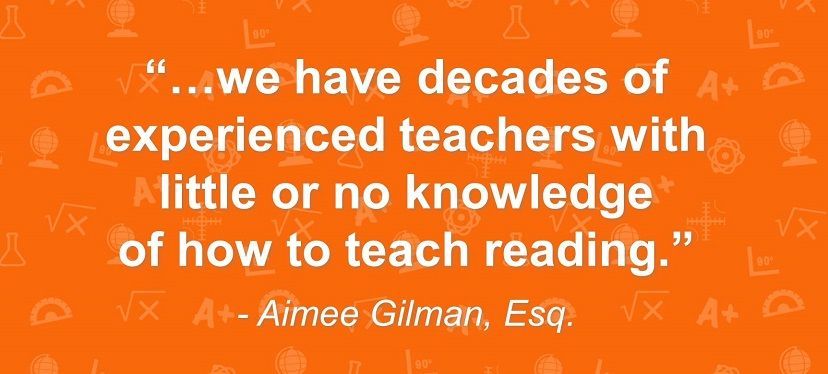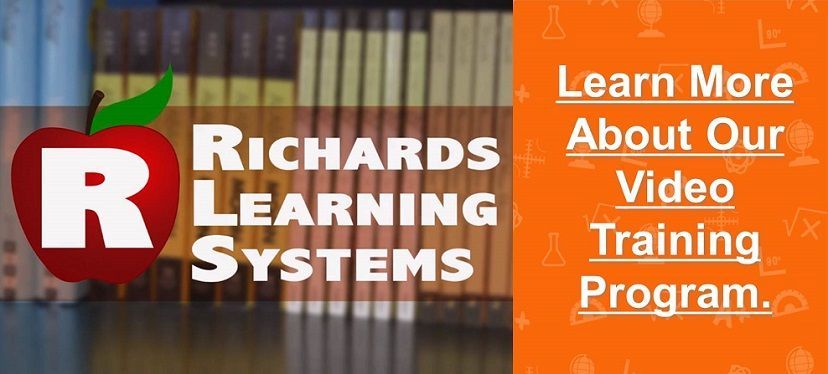“MIS-EDUCATION” IN OUR SCHOOLS
For decades I’ve talked about the literacy crisis in the United States. Despite spending $92,000 per year on education, literacy rates have remained stagnant since the 1970’s.
Let me explain the problem. If students cannot effortlessly read the big words in a passage, they will not comprehend what they read. If they cannot effortlessly spell the words they want to write, they will be able to only write basic elementary documents. Words like “official”, “paradox”, even “elementary”, are good examples.
So, imagine trying to read a biology or U.S. History text and only being able to read the simple words. The big words are where comprehension is needed. These words are the “meat” of the paragraph. Readers with limited reading skills will not comprehend this complex information.
Aimee Gilman, a respected education attorney in Cleveland, recently told me, “Students aren’t taught multi-sensory systematic phonics in our schools because our college teacher preparation programs do not teach any reading method to future teachers. Consequently, we have decades of experienced teachers with little or no knowledge of how to teach reading.”
Mrs. Gilman went on to say that schools are using Leveled Literacy Intervention by Fountas and Pinnell (FP), where students read stories based on their FP level. Fountas and Pinnell describe their readers: “Reading is a highly complex process. Readers must build a system of strategic actions for processing texts from A to Z that begins with early reading behaviors and becomes a network of strategic actions for reading increasingly difficult texts. The F&P Text Level Gradient™ should be seen as a continuum of progress for readers.”
Mrs. Gilman also mentioned “Guided Reading,” also by FP. A small group of students read a passage or story together, out loud with their teacher. Any gain for the students is hard to identify. However, with 600,000+ words in the English language, students will not and cannot memorize all the words.”
Currently, a local school district is in federal court over a dyslexic student that has not made progress in five years of school using FP programs. This district bought both programs district-wide. Yet, this fourth grader cannot read!
Yesterday I spoke with Hope, a tutor in an afterschool program serving at-risk youth. She is teaching reading comprehension, writing, grammar, etc. Her students have significant behavior difficulties because they are frustrated. They cannot read well or spell well. Yet, her program requires “more of the same” exercises students practice during school. They see Hope’s afterschool program as punishment.
Bernice, a teacher of high schoolers in an online program proudly said, “My students get diplomas.” Hurray! But I dug deeper and she said, “Many of our at-risk youth, when placed on computers, keep guessing until they get a correct answer. And with online programs there is no special track for poor students.” Bernice has scored SAT essays and is appalled by the poor writing and spelling on these college essays.
Mrs. Gilman, Hope and Bernice all told me the same thing. Our children, in general, have poor reading and spelling skills. Yet we keep forcing them to try to learn concepts beyond their abilities because they cannot read well. I keep beating the drum of literacy. Bernice calls it “Mis-Education”. We keep pushing higher standards and job-ready and work-ready initiatives. Yet, until our children can read, we will continue to have discouraging results.
To learn more about the Richards Learning Systems® Video Literacy Program for Teachers and Students, visit
www.cei4learning.org. Please join our mailing list and donate to our literacy cause. Every dollar we raise moves us closer to resolving the U.S. literacy crisis.










